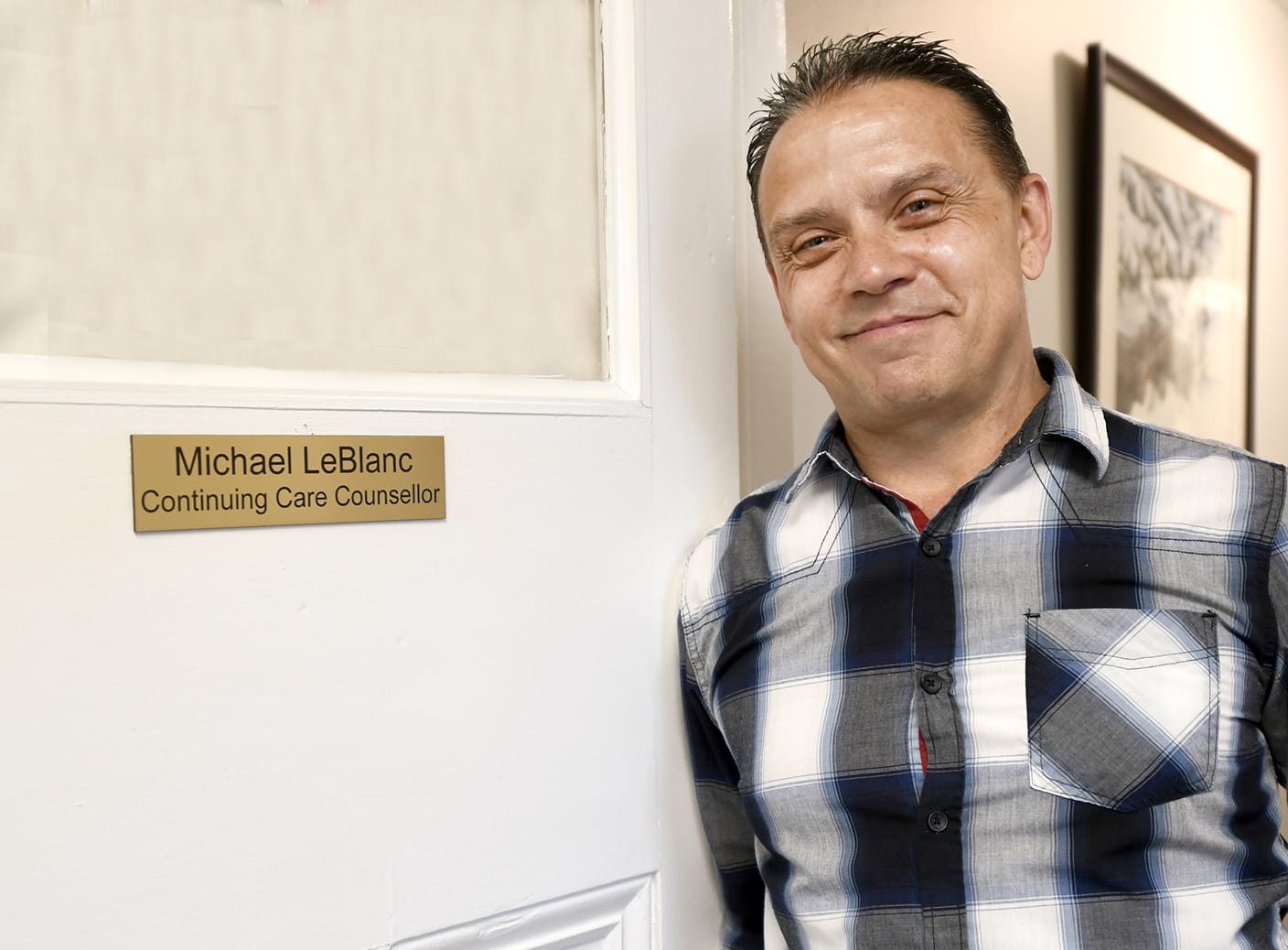Michael LeBlanc remembers the exact moment when he first declared that he wanted to become an addictions counsellor. At the time, he was in treatment himself at Renascent Paul J. Sullivan Centre (Sullivan Centre), for a debilitating addiction to crystal meth. Having started drinking at an early age, Michael’s addiction slowly progressed over the years.
“When I started crystal meth I knew that I couldn’t function without it,” says Michael. “Addiction sucked the life out of me and I am so grateful that I was able to stop.”
Today, whenever Michael walks through the office at Sullivan Centre that bears his name, he is filled with gratitude because of this “miracle.” There was a time when even getting out of bed proved to be immensely difficult.
Michael wears a few hats as an Addictions Counsellor at Renascent. He sees inpatient clients for group and one-on-one counselling at Sullivan Centre and does the same in an online format as part of Renascent’s Continuing Care Program.
“I really love meeting and sitting with the clients and getting to know them,” says Michael. “When I see someone who comes into the house that identifies as gay or transgender, I take the extra time to connect and ensure they feel welcomed. I remember what it was like for me when I first came into treatment and I don’t want anyone to feel afraid or alone.”
Michael vividly remembers the apprehension he felt around being gay in a male treatment centre.
“I come from a generation where being gay wasn’t that accepted. I was afraid that I was going to be bullied, or made fun of, and that I wouldn’t be able to receive proper treatment,” shares Michael. “During my first group meeting with the other men in the centre, I shared my sexuality and all 28 guys in that room got up and hugged me. In that moment I knew I was going to be ok. I was able to open up about my sexuality and how I struggled with it, and how it may have led me to making some of the decisions and mistakes I made.”
Working in addiction treatment and mental health has given Michael more fulfillment than he could have ever imagined.
“I have my own office with my name on the door. It’s something I dreamed of and I was able to achieve in recovery,” says Michael. “For the longest while I felt like I did nothing in my life but take drugs. Now, I feel like a success. It’s a beautiful feeling.”
When asked what advice he’d share with alumni who are still struggling with addiction, Michael says:
- Take the suggestions that are offered to you in treatment and never give up. It worked for me. I came into treatment when I was 48 years old. I thought it was too late to get clean and too late to go back to school. My five-year medallion reads, “It’s never too late.”
- Don’t ever be afraid to ask questions about the Program. When I did the 12 Steps, I struggled with Step 4 and I struggled with low self-esteem. I thought my sponsor would think I was not smart if I asked him to explain it. When I finally did reach out to him, he said it is normal for people to have questions and that’s how you learn – by asking questions.

